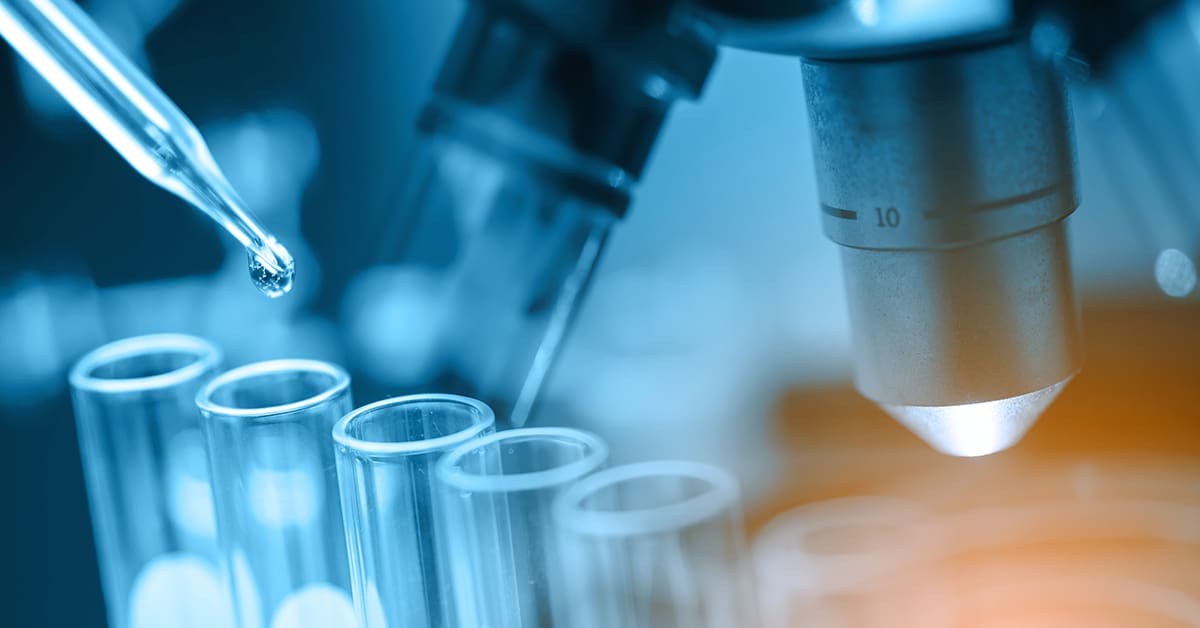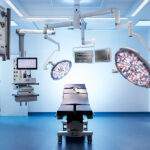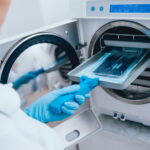Laboratory products play a vital role in scientific research and experimentation. From basic laboratory equipment to advanced technological instruments, these products enable scientists, researchers, and students to conduct experiments, analyze data, and make groundbreaking discoveries. In this article, we will explore the importance of laboratory products in various fields of science and how they contribute to advancing our understanding of the world around us.
Introduction: The Role of Laboratory Products
Laboratory products encompass a wide range of tools, equipment, and consumables used in scientific laboratories. They facilitate various processes, experiments, and analyses, enabling scientists and researchers to gather accurate data and make scientific advancements. Without these essential products, scientific discoveries and breakthroughs would be severely hindered.
Essential Laboratory Equipment

Microscopes
Microscopes are fundamental tools used to magnify and observe microscopic specimens. They are indispensable in biological, medical, and material science research, allowing scientists to study cells, tissues, and microorganisms with remarkable detail.
Centrifuges
Centrifuges are devices used to separate substances based on their density. By spinning samples at high speeds, centrifuges enable the separation of solids, liquids, and gases, crucial for numerous applications in biology, chemistry, and clinical diagnostics.
Pipettes and Micropipettes
Pipettes and micropipettes are precision instruments used for accurate measurement and transfer of liquids. They are extensively employed in molecular biology, biochemistry, and pharmaceutical research, where precise volumes are crucial for obtaining reliable results.
Glassware and Plasticware
Glassware and plasticware are essential for containing, measuring, and mixing chemicals and biological samples. Beakers, test tubes, flasks, and petri dishes are among the common laboratory products used for various experiments, ensuring safe and controlled reactions.
Heating and Cooling Devices
Heating and cooling devices such as ovens, incubators, refrigerators, and freezers are vital for maintaining specific temperature conditions in the laboratory. They are necessary for sample storage, bacterial culture incubation, and controlled reactions that require specific thermal conditions.
Balances and Weighing Equipment
Balances and weighing equipment are used to measure the mass of substances accurately. They are critical in chemistry, pharmacy, and research laboratories, where precise measurements are essential for formulating solutions, preparing samples, and determining concentrations.
Safety Equipment
Safety equipment, including gloves, goggles, lab coats, and fume hoods, ensures the protection of laboratory personnel from hazardous substances and experimental conditions. Adhering to safety protocols and using appropriate safety equipment is of utmost importance to prevent accidents and exposure to harmful substances.
Advanced Technological Instruments
Spectrophotometers
Spectrophotometers are instruments used to measure the intensity of light absorbed or transmitted by a sample. They find extensive use in molecular biology, biochemistry, and environmental science, enabling precise quantification of substances and analysis of complex biological molecules.
Chromatography Systems
Chromatography systems are powerful tools for separating and analyzing complex mixtures. Gas chromatography (GC) and liquid chromatography (LC) are widely used techniques in chemistry and forensic analysis, allowing the identification and quantification of chemical components.
PCR Machines
Polymerase Chain Reaction (PCR) machines are essential for amplifying specific DNA sequences. They revolutionized molecular biology and genetics, enabling DNA analysis, genetic profiling, and diagnostic testing for various diseases.

NMR Spectrometers
Nuclear Magnetic Resonance (NMR) spectrometers provide detailed structural information about molecules by analyzing their magnetic properties. They are widely used in organic chemistry, pharmaceutical research, and drug development to elucidate the structure and dynamics of complex molecules.
Mass Spectrometers
Mass spectrometers are instrumental in identifying and quantifying chemical compounds based on their mass-to-charge ratios. They have applications in analytical chemistry, environmental monitoring, and proteomics, facilitating the detection and characterization of molecules with high accuracy.
Incubators and Shakers
Incubators and shakers create controlled environments for cell and bacterial cultures. They provide optimal conditions for cell growth, protein expression, and microbiological research, contributing to various fields such as biotechnology, pharmaceuticals, and medical research.
Specialized Laboratory Products
Cell Culture Supplies
Cell culture supplies, including cell culture plates, flasks, and media, are vital for growing and maintaining cells in a controlled environment. They are extensively used in cell biology, regenerative medicine, and drug development to study cell behavior and develop therapies.
Molecular Biology Kits and Reagents
Molecular biology kits and reagents are essential for DNA and RNA analysis, cloning, and gene expression studies. These kits contain pre-prepared solutions and enzymes necessary for various molecular biology techniques, facilitating research in genetics, genomics, and molecular diagnostics.
Chemicals and Solvents
Chemicals and solvents are indispensable in laboratory settings for chemical reactions, sample preparation, and analysis. They come in various forms and purities, enabling precise control of experimental conditions and accurate measurement of substances.
Lab Consumables
Lab consumables encompass a wide range of disposable products used in day-to-day laboratory operations. Examples include filter tips, microcentrifuge tubes, PCR tubes, and petri dishes. These consumables ensure contamination-free experiments and streamline laboratory workflows.
Laboratory Furniture
Laboratory furniture, such as lab benches, fume hoods, and storage cabinets, provides functional and safe working environments. Ergonomically designed furniture and proper storage solutions enhance efficiency, organization, and safety in the laboratory.
Laboratory Product Quality and Standards
To ensure reliable and accurate results, laboratory products adhere to specific quality standards. Some important aspects include:
ISO Certification
Many laboratory product manufacturers obtain ISO certification, indicating compliance with internationally recognized quality management systems. ISO certification ensures that the products meet stringent quality requirements and are manufactured following standardized processes.
Good Laboratory Practices (GLP)
Good Laboratory Practices (GLP) are guidelines and regulations that define the standards for conducting laboratory experiments. Adhering to GLP ensures the integrity, reliability, and traceability of data generated from experiments.
Quality Control and Assurance
Laboratory product manufacturers employ quality control and assurance measures to ensure the performance and reliability of their products. These measures include rigorous testing, calibration, and adherence to predefined specifications.
The Impact of Laboratory Products on Scientific Discoveries
Laboratory products have a profound impact on scientific discoveries and advancements. Let’s explore some areas where these products contribute significantly:
Medical and Pharmaceutical Research
Laboratory products are crucial in medical and pharmaceutical research, enabling the development of new drugs, therapies, and diagnostic tools. They facilitate the study of diseases, drug interactions, and the evaluation of treatment efficacy.

Environmental Science
Laboratory products are instrumental in environmental science research, enabling the analysis of air, water, and soil samples for pollutants, contaminants, and environmental factors. They contribute to understanding environmental changes, pollution sources, and their impact on ecosystems.
Material Science
Laboratory products play a vital role in material science research, allowing the characterization and testing of materials for various properties. They enable the development of new materials with improved mechanical, electrical, and chemical properties.
Biotechnology and Genetics
Laboratory products are essential in biotechnology and genetics research, enabling gene manipulation, DNA sequencing, and protein analysis. They support advancements in genetic engineering, personalized medicine, and the development of biotechnological products.
Forensic Science
Laboratory products are critical in forensic science, facilitating the analysis of crime scene evidence, DNA profiling, and forensic toxicology. They aid in solving crimes, identifying perpetrators, and providing crucial evidence in legal proceedings.
Agricultural Science
Laboratory products contribute significantly to agricultural science research, allowing the analysis of soil composition, crop quality, and the development of pest control measures. They enable advancements in crop breeding, genetic modification, and sustainable agricultural practices.
Future Trends in Laboratory Products
The field of laboratory products continues to evolve, driven by technological advancements and changing research needs. Some future trends include:
Automation and Robotics
Automation and robotics are increasingly integrated into laboratory workflows, streamlining processes, reducing human error, and improving efficiency. Automated sample handling, liquid handling, and data analysis systems enhance productivity and accelerate research outcomes.
Integration of Artificial Intelligence
Artificial Intelligence (AI) is revolutionizing laboratory processes by enabling data analysis, pattern recognition, and predictive modeling. AI algorithms can analyze vast amounts of data, identify trends, and generate insights, leading to more efficient experimentation and faster discoveries.
Sustainable and Eco-Friendly Solutions
The demand for sustainable and eco-friendly laboratory products is growing. Manufacturers are developing products that minimize waste, reduce energy consumption, and use environmentally friendly materials. This trend aligns with the global focus on sustainability and responsible laboratory practices.
Conclusion
Laboratory products form the foundation of scientific research and experimentation. From basic equipment to advanced technological instruments, these products enable scientists and researchers to push the boundaries of knowledge, make groundbreaking discoveries, and solve complex problems. Their role in various fields of science, including medicine, genetics, environmental science, and material science, is undeniable. As technology advances and research needs evolve, laboratory products will continue to play a crucial role in driving scientific advancements and shaping the future of scientific discovery.



